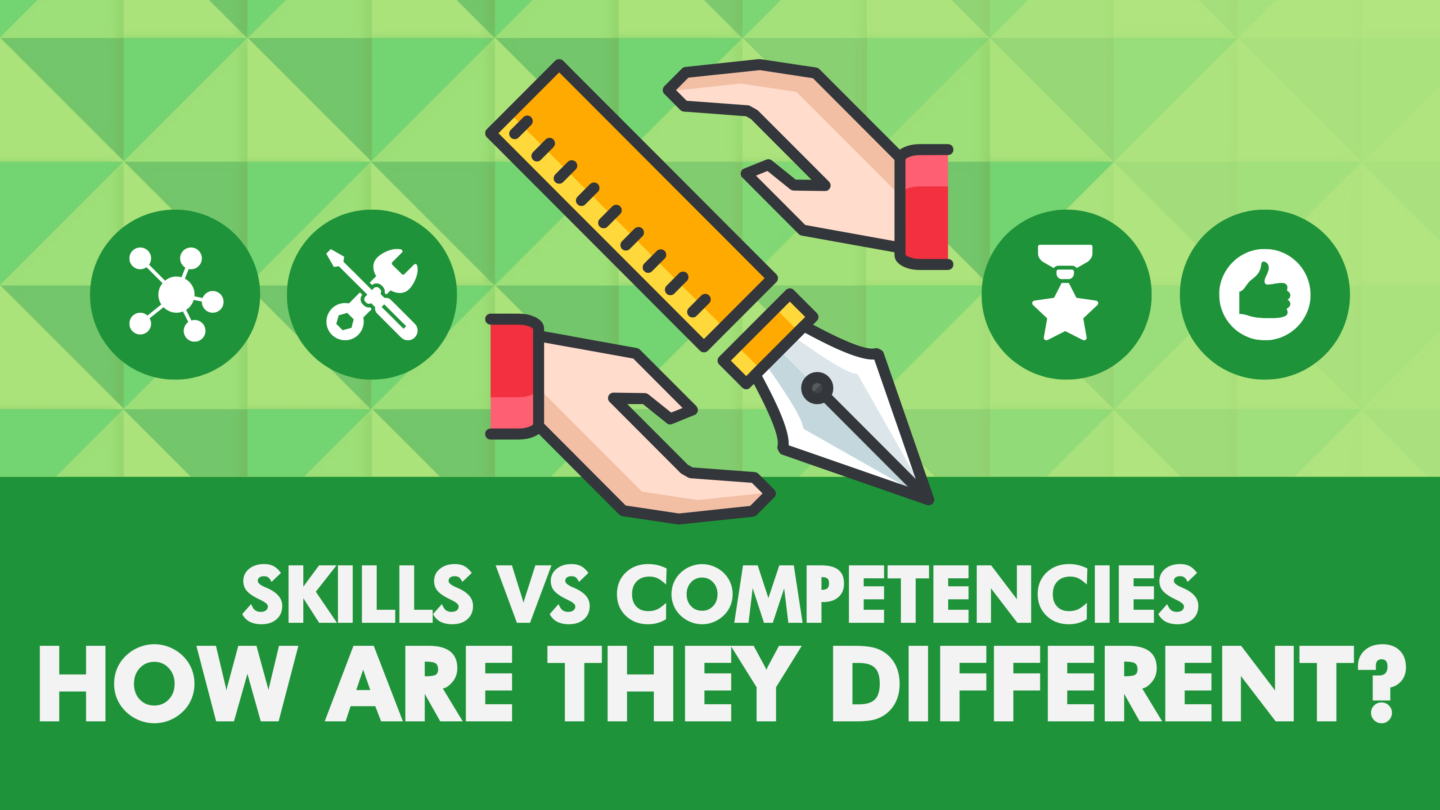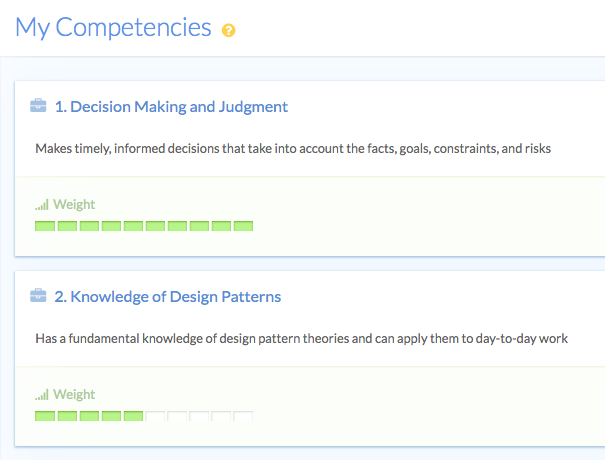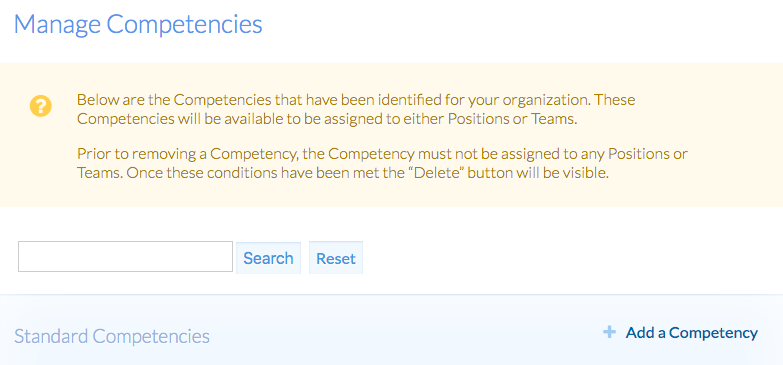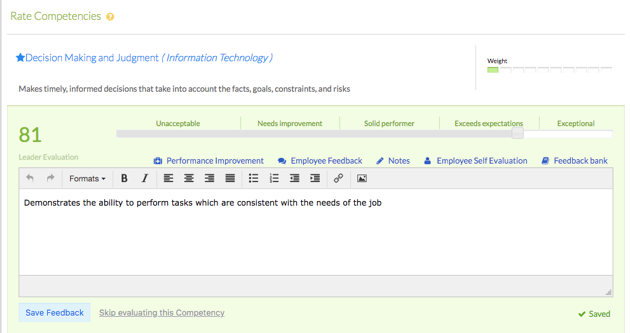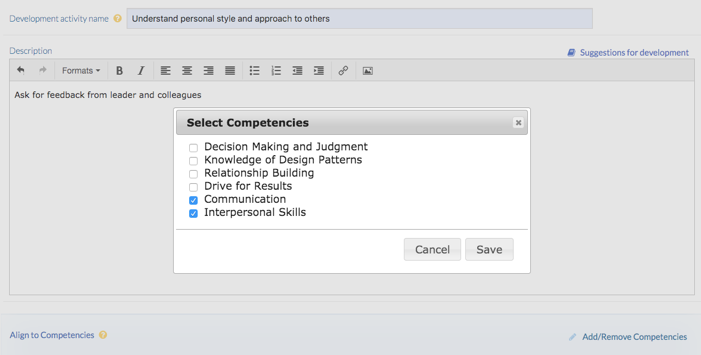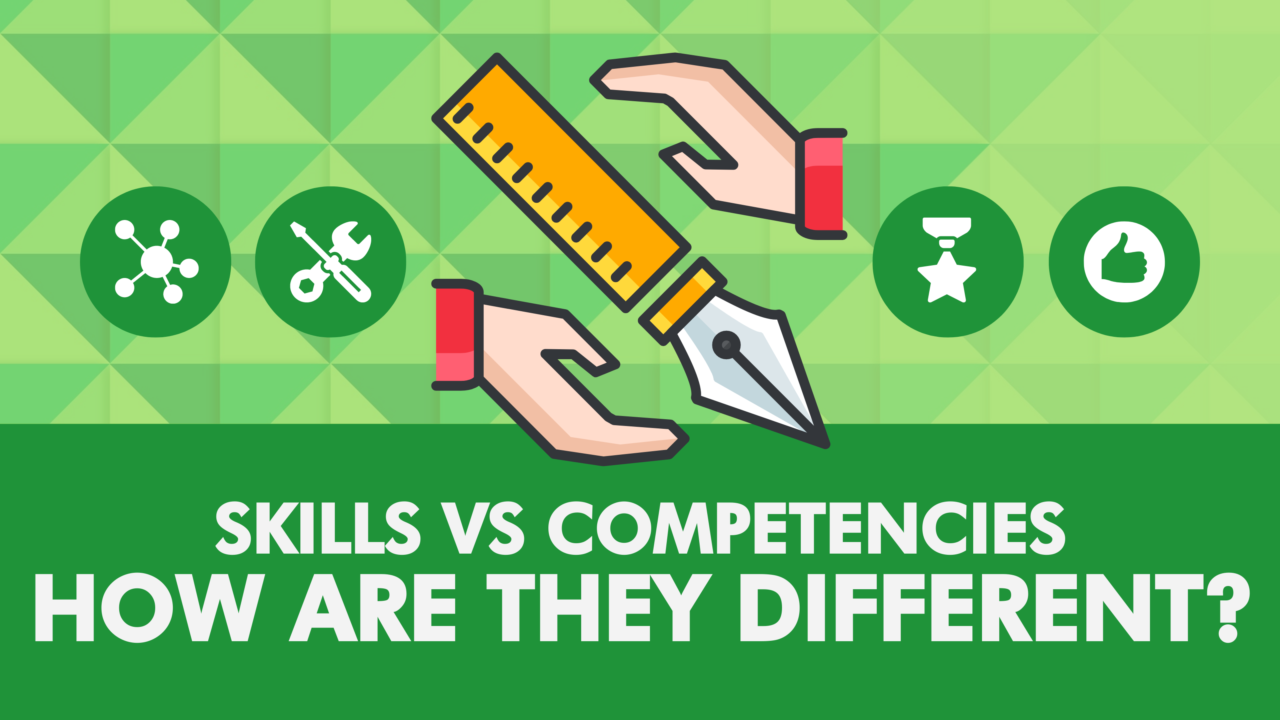
Skills vs Competencies
How Skills and Competencies Are Different
Skills and competencies are NOT the same thing.
You’ll often find the terms “skill” and “competency” used in a manner that would imply that they refer to the same thing. While they are certainly related, there are important differences between skills and competencies that you should be aware of.
Let’s start by looking at skills.
What is a skill?
A skill can be thought of as a specific ability that an individual possesses. A skill is typically applied in a specific setting in order to accomplish a predefined desired result. Skills can be learned through training or by experience. Skills are also performed at varying levels of expertise, sometimes based on years of experience and / or an assignment or role performed within a given project. A skill is easily defined.
It is common to hear a skill being referred to as ‘the what’ component of completing a task. What skills are required to complete a job?
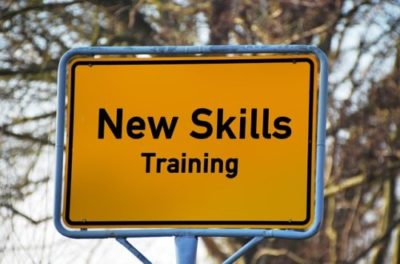
Skills Examples
1. Playing Piano
Physically playing the piano can be considered a skill. You can take lessons and practice to learn this skill. This skill can be applied to achieve the desired result of playing a song!
2. Ironing Clothes
Believe it or not, there are many people out there that do not know how to iron clothes. How they got this far is anyone’s guess, but the fact of the matter is that ironing clothes is a skill that you must learn! This skill can be applied to achieve the desired result of a nicely ironed shirt!
3. Using Microsoft Excel
Knowing how to use Microsoft Excel is an example of a skill, as would knowing how to use any other tool for its intended purpose. Technical skills like this are often sought after or considered to be a requirement for a specific role.
However, knowing how to use Excel doesn’t necessarily mean that you can interpret data in a meaningful way and present your findings to others. In order to do this, you would need to exercise decision making, and communication in conjunction with your Excel skill set.
While using Excel can be thought of as a skill, decision making and communication can be considered competencies.
Let’s take an in depth look at competencies.
What is a competency?
A competency is a broader concept, that combines skills, knowledge and behavior. While competencies may include a specific skill, they are more than just that skill alone.
It is common to hear competencies referred to as ‘the how’ component of completing a task. How does an individual perform the duties of their job?
Skills vs Competency Examples
Let’s revisit our previous examples in the context of a job.

1. Pianist
Let’s say you’re hiring a pianist to perform at a variety of formal functions, spanning a number of different venues. There are many considerations that you should make before hiring.
Of course, you would require that the pianist have technical skills. A pianist needs to be able to play the piano. But I’m sure you’d agree that having this skill, simply being physically capable of playing the piano is not enough. There’s much more to performing than pure technical skills.
For example; what if the pianist gets nervous in front of large crowds?
You’d probably want to hire someone that exhibits relevant competencies such as;
Stress Tolerance & Confidence
If the pianist gets nervous in front of crowds, their piano playing skills will not be enough to get the job done. In order to perform, possessing the competencies of stress tolerance and confidence are critical.
Skills vs Competencies
So how do things like stress tolerance and confidence differ from something like physically playing the piano?
Think about this, how would one go about learning stress tolerance or confidence? Yes, you can take workshops to help you build confidence or manage your stress, but you can’t directly learn these things in the same way that you could learn to play the piano.
This is because stress tolerance and confidence are not individual skills, but a combination of skills, knowledge and behavior… a competency!
Pianist Job Requirements
The WHAT → Piano skills.
The HOW → Exercising confidence and stress tolerance to effectively make use of piano skills in front of an audience.
Being a successful pianist requires a number of skills and competencies, as is the case with any job!

2. Ironer
Let’s say you’re hiring someone to work for your dry-cleaning company that offers ironing as a service. You’re looking to fill a position for someone who would exclusively iron clothing, nothing else!
Is the skill of ironing clothes the only thing that matters? Assuming you want clients to be satisfied with your service, you want the job to be done right! You would want an individual who is motivated and has a commitment to continued excellence.
Motivation & Commitment to Excellence
Motivation and commitment to excellence are both examples of competencies that most employers would look for in an employee. These competencies are the difference between an individual who is technically capable of doing the job, and an employee who excels and takes pride in their work.
Skills vs Competencies
You can learn the skill of ironing, but can you learn motivation and commitment to excellence? Not directly! This is because motivation and commitment to excellence are combinations of skills, knowledge and behavior. Are you seeing a pattern here?
Ironer Job Requirements
The WHAT → Ironing skills.
The HOW → Exercising a strong commitment to excellence and motivation in order to effectively and consistently make use of their ironing abilities.
You could be the best ironer in the world, but if you’re not motivated and committed to your work, what good is your skill to an employer? As is the case with any job, a number of skills and competencies are necessary for success.
3. Data Analyst
I’m sure it goes without saying, but you need more than just wicked Excel skills to be a Data Analyst! As we mentioned before, knowing how to use Excel is one thing, but actually analyzing data in a meaningful way is another!
A Data Analyst needs to know how to apply their skills in a manner that allows them to draw meaningful conclusions and effectively convey the implications of their findings to others.
A Data Analyst would be required to exercise planning and organization, decision making and communication in order to effectively perform their role.
Planning & Organization, Decision Making, Communication
Before even using their Excel skills, a Data Analyst would need to organize and plan what exactly they intend to do with whatever data they possess. There are many different ways to analyze data, and the ability to make a decision as to which method is appropriate in a given situation is critical.
Skills vs Competencies
You can be taught how to use Excel and hone your skills through experience. But the other factors at play here, planning & organization, decision making, and communication are all, you guessed it - combinations of skills, knowledge and behavior.
Data Analyst Job Requirements
The WHAT → Analyzing data with Excel.
The HOW → Organizing and planning your resources, making a decision as to the best way to use your Excel skills in order to produce meaningful and communicable results.
In the context of a Data Analyst job, Excel skills alone won’t get you too far. Competencies are required throughout the whole process, even before you open up Excel!
Skills and Competencies Summary
Skill → The WHAT → A specific ability that can be applied in a specific setting in order to accomplish a predefined desired result.
Competency → The HOW → The combination of skills, knowledge and behavior that is exercised in order to effectively perform the duties of a job.
Using Competencies in Practice
At SpriggHR, we believe that competency alignment is an important part of effectively defining the role of an individual or group of individuals within a company.
It is for this reason that our software allows you to create, customize and assign your own competencies and then align them to the appropriate individuals and / or teams.
There are varying opinions that believe competencies should be part of the metrics evaluated in a performance review. Others firmly believe that competencies are strengthened over time and should therefore be part of the personal development plan.
The Sprigg application allows for either. You can incorporate competencies into the review process measuring performance OR enable competency alignment between training & development activities, making any development plan activity contextual and relevant to that person’s job.
We also understand that some competencies may carry more weighting than others within any given role. It may be also that the assigned distribution of weightings vary between goals and competencies. Either way, Sprigg allows you full flexibility in calibrating and assigning these weightings.
Ready to learn more about how we use competencies to drive performance?
We would love to introduce you to Sprigg. Hit the “Request a Demo” button and we'll customize a demo just for you, led by one of our senior HR professionals. We look forward to connecting!

